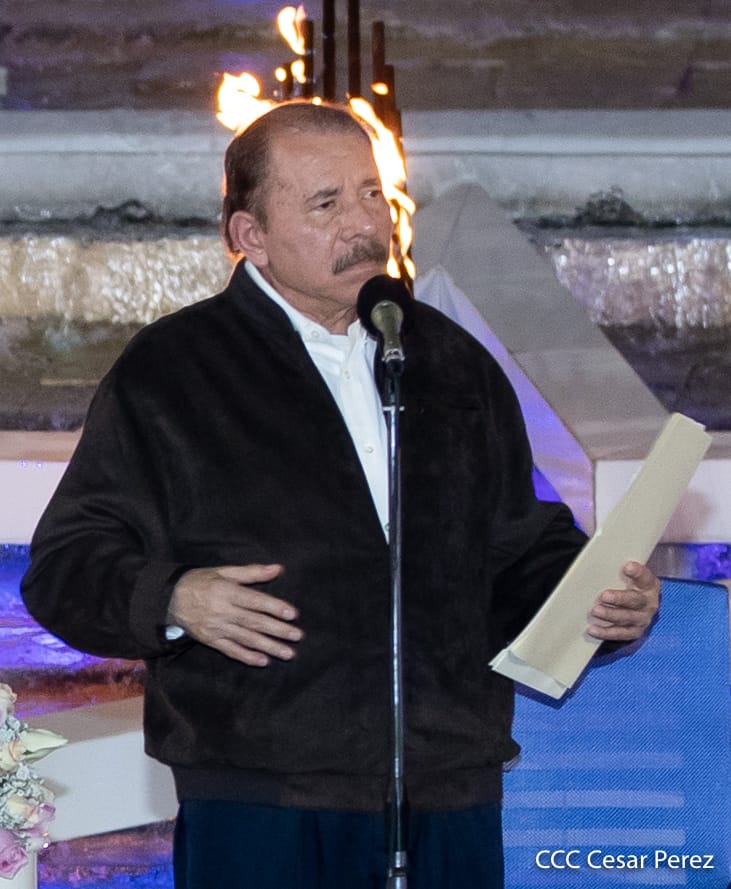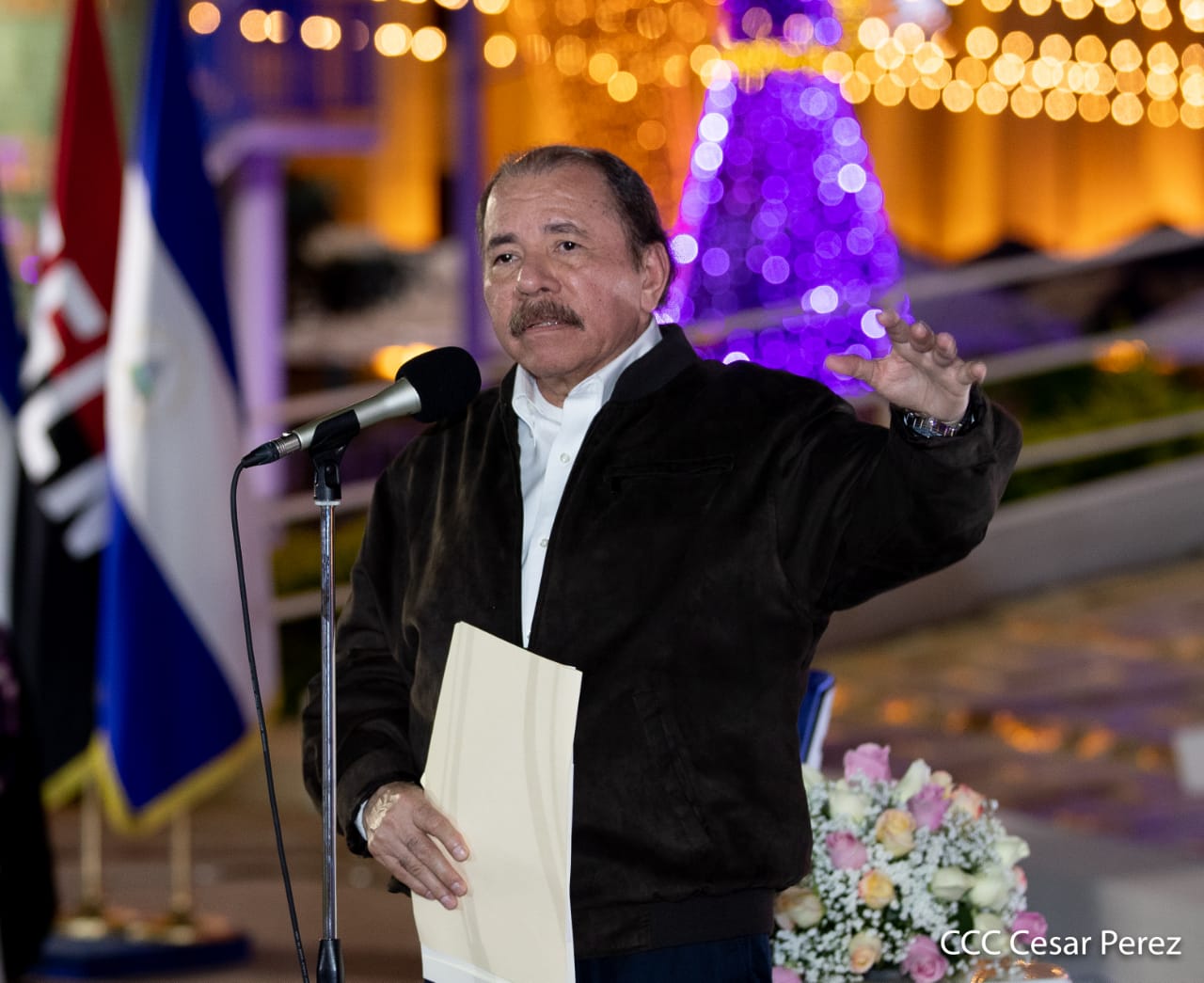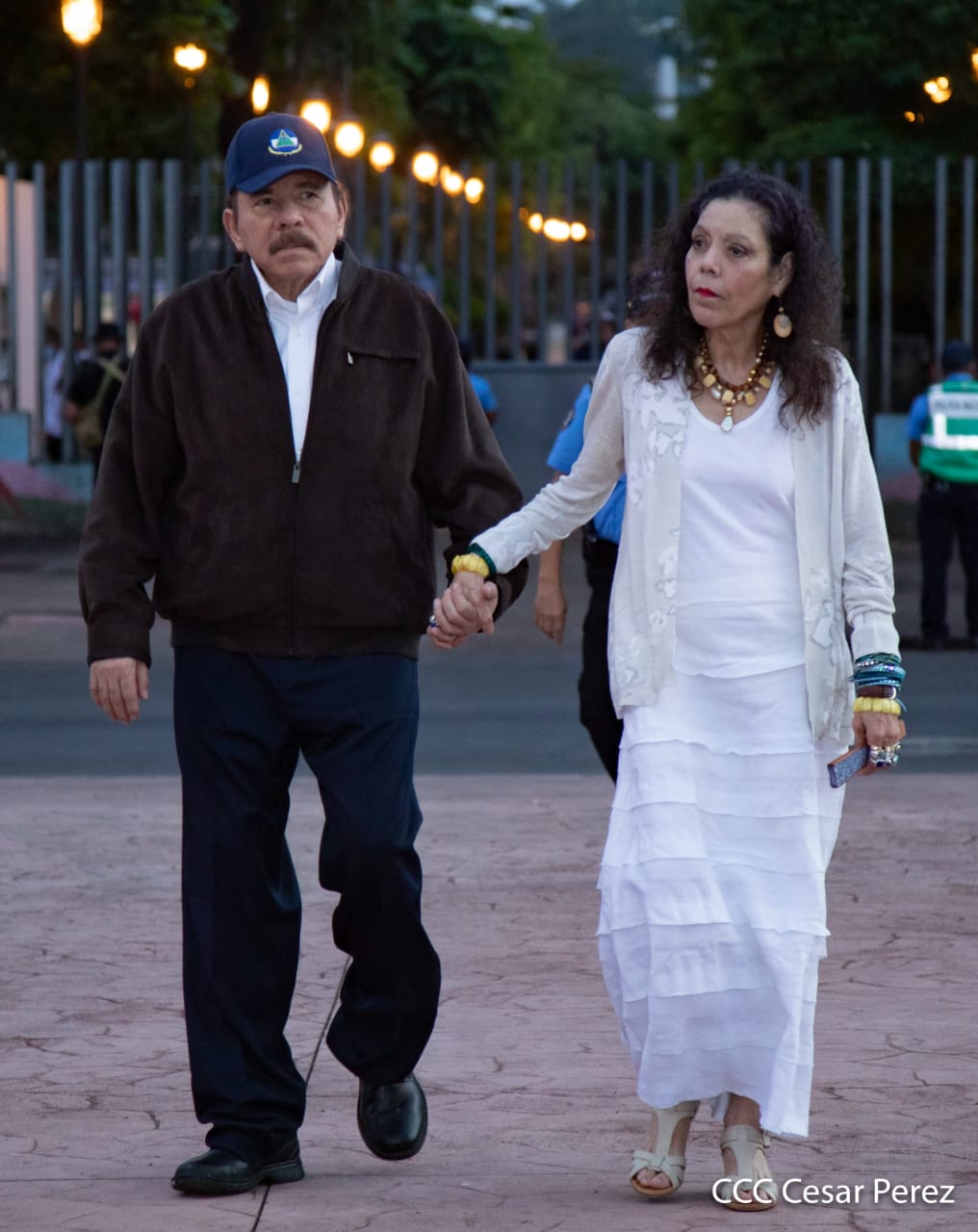 Nicaraguan brothers and sisters, Families of this land of Dario, Diriangén, of Nicarao, of Sandino, land of indigenous roots, where in the midst of our multicolored process the roots of our ancestors are still present, still alive.
Nicaraguan brothers and sisters, Families of this land of Dario, Diriangén, of Nicarao, of Sandino, land of indigenous roots, where in the midst of our multicolored process the roots of our ancestors are still present, still alive. Because we, the Sandinistas, an armed Revolution, which came to power by force of arms, having all the Electoral Power in our hands in the year 1990, it was not the Yankees then but the People and it was the Sandinista People who formed the Supreme Electoral Council, some representatives of the other political parties participating in the Elections were integrated too. And we went to those elections in 1990.
Because we, the Sandinistas, an armed Revolution, which came to power by force of arms, having all the Electoral Power in our hands in the year 1990, it was not the Yankees then but the People and it was the Sandinista People who formed the Supreme Electoral Council, some representatives of the other political parties participating in the Elections were integrated too. And we went to those elections in 1990. And we have a lot of police officers who were killed. At the checkpoints where the coup activists were present, police who were in civilian clothes, who were passing by and were discovered when they were searched, or Sandinistas who were found with their party card, were immediately tortured, and then shot. And the coup activists would film the moment of capture, they would film the moment that they were being sprayed with fuel, they would film the moment that they were being set on fire and that they were burning, and they would publish it on social media.
And we have a lot of police officers who were killed. At the checkpoints where the coup activists were present, police who were in civilian clothes, who were passing by and were discovered when they were searched, or Sandinistas who were found with their party card, were immediately tortured, and then shot. And the coup activists would film the moment of capture, they would film the moment that they were being sprayed with fuel, they would film the moment that they were being set on fire and that they were burning, and they would publish it on social media.